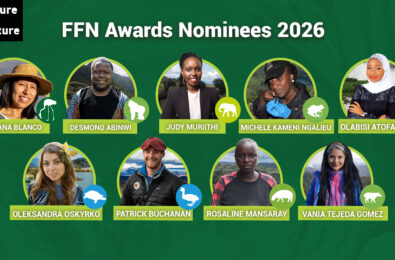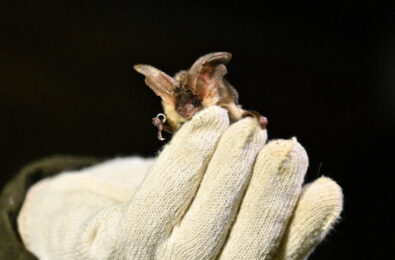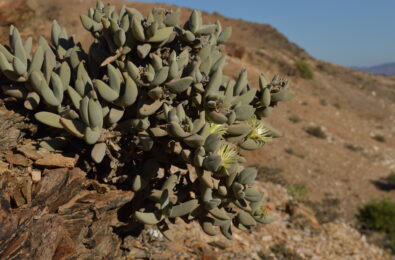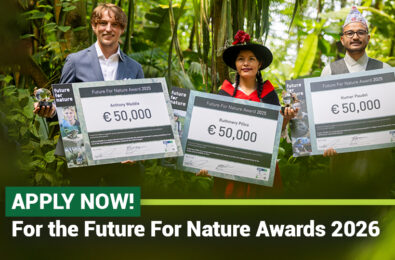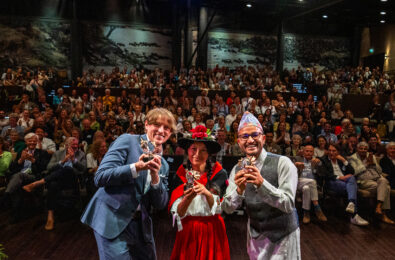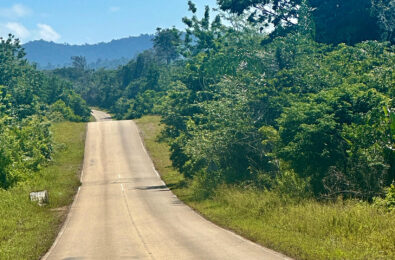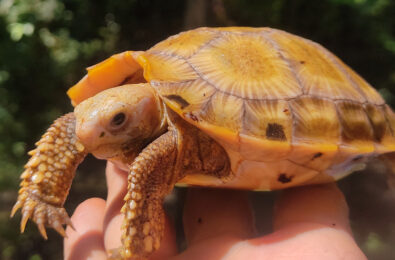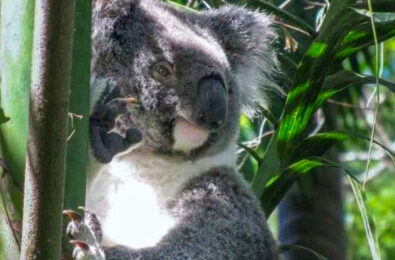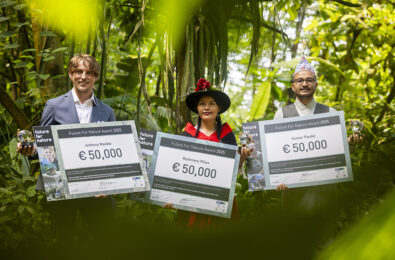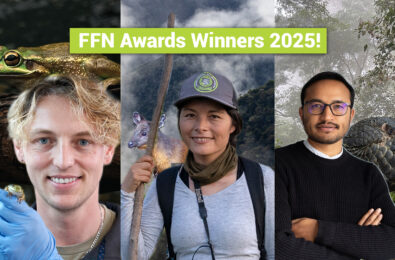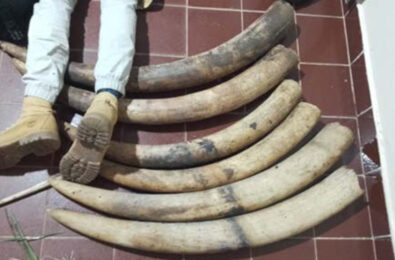Two bird species, two conservationists, one solution
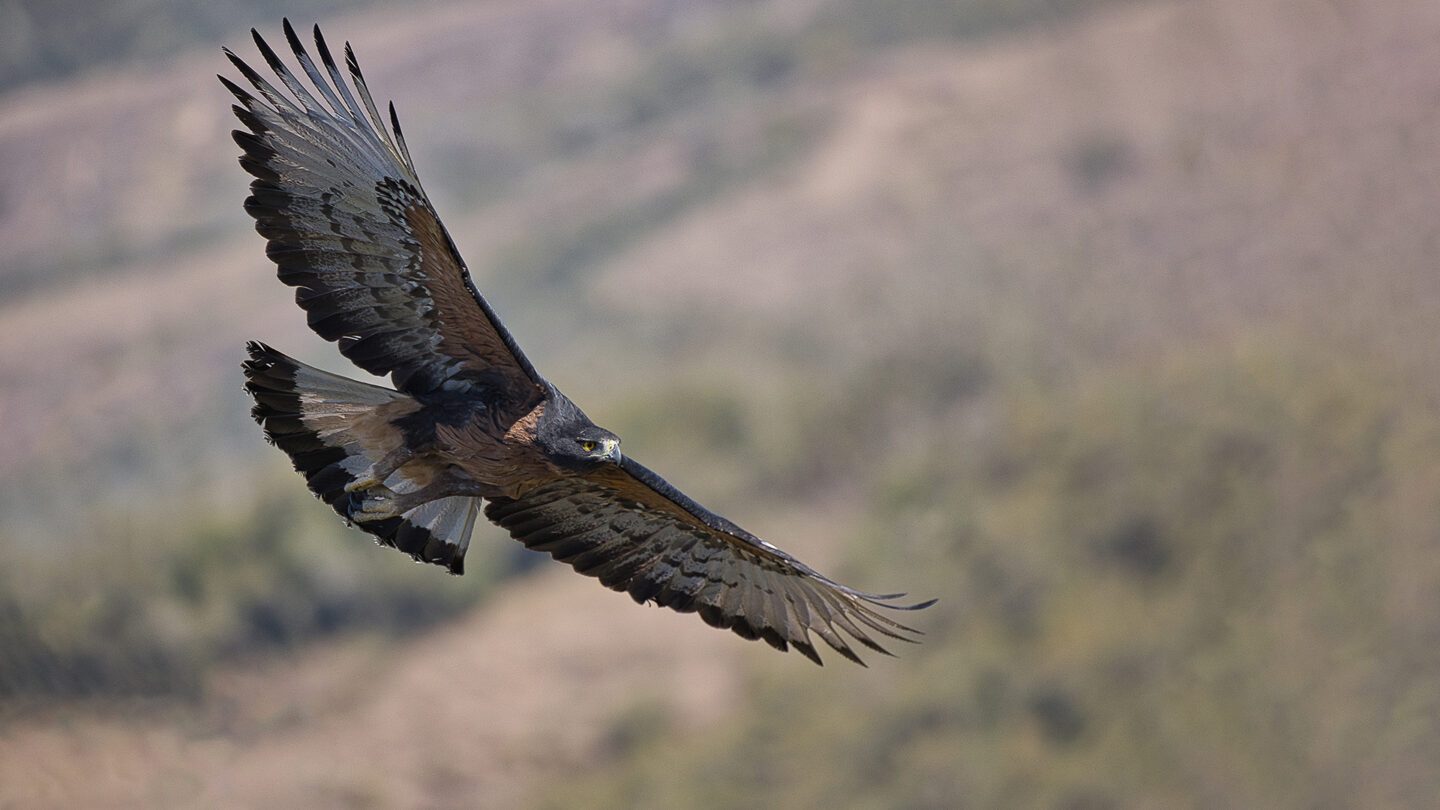
FFN Family Funding allows laureates to visit each other’s projects and learn from each other’s work and vision. Recently Tomás Rivas Fuenzalida visited Hana Weaver in Puerto Rico.
The Puerto Rican Sharp-shinned hawk (Accipiter striatus venator) is a critically endangered endemic raptor in Puerto Rico, of which only a few dozen pairs are left in the wild. The Rufous-tailed hawk is one of the rarest and most threatened raptors in the Americas, found in the forests of Chile and Argentina. Despite living far apart, these raptors share similarities in their struggles. Hana and Tomás work tirelessly to protect these species who play valuable parts in their ecosystems. In July 2025, Tomás Rivas Fuenzalida (FFN winner 2023) visited fellow FFN laureate Hana Weaver (FFN winner 2024) to learn more about her groundbreaking recovery program for the Puerto Rican Sharp-shinned hawk, and see how he can implement it for the Rufous-tailed hawk in Chile.

Juvenile Rofous-tailed Hawk (left) and juvenile Puerto Rican Sharp-shinned hawk (right).
Hacking the system
Hana developed a unique breeding programme after a hurricane decimated the populations of the endemic Puerto Rican sharp-shinned hawk. She and her team collect eggs from wild nests (birds usually lay a second clutch afterwards) and incubate them in a special incubation and rearing facility converted from a small bedroom. Once hatched, the team cares for the chicks born in captivity using the “hacking” technique. Chicks are raised in a hacking-box, allowing them to be in their natural habitat within a controlled setting and out of reach for predators. The birds are gradually released as they learn to fly and begin to play with their siblings. By providing food in the box before dawn, the birds are fed every day without associating food with humans.

Hana (left) showing Tomás (right) an old hacking box they used during the first years of the project.
Birds-eye view
Tomás visited Hana in Puerto Rico to learn about this technique to see if he can use it for population reinforcement for the Rufous-tailed hawk. Though their visit started off a little rocky as their flight to Puerto Rico got delayed, they made the best of this minor travel set-back by visiting a local program in the Dominican Republic, where the Peregrin Fund works to protect the Ridgway’s Hawk (Buteo ridwayi).
Once arrived in Puerto Rico, Hana showed the incubation process and Tomás got to see firsthand what goes into protecting these birds. This includes feeding and monitoring the captive-bred birds, but Hana’s team is also very active with surveillance of the hacking site to keep away predators. Large raptors such as the red-tailed hawk (Buteo jamaicensis jamaicensis) are a real threat for the sharp-shinned hawk chicks and Hana and Tomás discussed potential solutions, such as capturing juveniles of the predating raptor, using masks while handling them and then placing these masks around the hacking site as a deterrent.

Hana shows the artificial incubator she uses to hatch the first clutch of wild chicks, boosting chick numbers in Puerto Rico.
Protecting together
Tomás will take all this newly acquired knowledge home with the aim to build a population recovery project for the Rufous-tailed hawk. He will need to do viability studies and look for financial support, but plans to set up a programme together with Hana. Besides collaborating on a project, Hana and Tomás also want to write two scientific articles together, about the human-wildlife conflict and super-predation.
Future For Nature values supporting their winners by offering visits. These visits not only allow knowledge exchange and sharing experiences that help protect species and improve conservation projects, but also support conservationists more personally. By discussing conservation issues and challenges in their work, FFN Family members mention they feel less lonely and more inspired to continue their work.
Help us Grow the Future For Nature Family Funding
Future For Nature aims to create a global network of outstanding nature conservationists. In addition to the annual FFN Awards, we offer FFN laureates the opportunity to apply annually for funding for specific types of projects aimed at strengthening the collaboration. You can help us support the FFN Family by making a donation. Thank you!
Written by Marloes Leeflang






